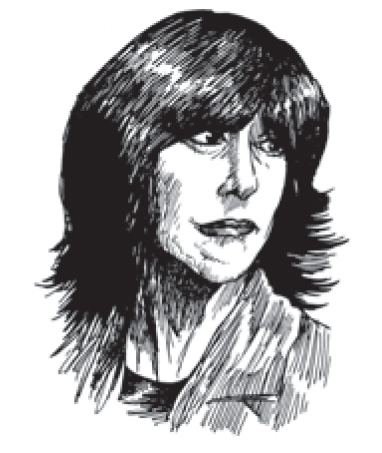Nora Ephron says that when she’s writing a movie, the middle is the hardest part to get right. But in real life, and socially, she’s great at the middle. She’ll even substitute it for the beginning, which has the captivating effect of fostering an immediate sense of social intimacy.
We met on a day when the leaves were starting to crumble off L.A.’s deciduous trees and blow all over the place. As she pulled open the heavy wooden door to her bright, neat home in Beverly Hills, before extending her hand or saying hello, she looked past me at the ground and said something about how she was happy there were no leaves on the front steps, that she didn’t want it to be messy for my arrival. A little later, after giving me coffee and water to drink, and corn chips to eat, she motioned to a small bowl of satsuma tangerines on the table. She was already eating one and said, “You have to try one. They’re from my little tree.” Before I could pick one out of the bowl, she peeled off two segments from hers and placed them in my palm.
There’s a practicality to her charisma that is rare, though that shouldn’t come as a surprise to anyone who has followed her enormous career. Ephron has been working in male-dominated milieus since her early twenties: starting with newspaper journalism in New York in the 1960s; moving on to magazine writing, then screenplays; accruing a hat trick of Academy Award nominations for writing Silkwood, When Harry Met Sally…, and Sleepless in Seattle, which she also directed. Her latest success was Julie & Julia, which she wrote, produced, and directed.
Her 2006 book, I Feel Bad About My Neck: And Other Thoughts on Being a Woman, became a best seller, as did her follow-up essay collection, I Remember Nothing: And Other Reflections. Critics and fans recognize her as the mother of the romantic comedy, and a whole other subset of critics and fans credits her with being the original Tina Fey. But she’s likely to reject all that lionizing—of her career, her accolades, her voice. It became clear over the course of our conversation that every bit of her work energy goes not into mythology, nor the crusade of the female comedy writer, but into the slog of writing, thinking, planning, and more writing.
—Kathryn Borel
I. GRAMMATICALLY INCORRECT MORAL OUTRAGE
THE BELIEVER: You’ve said that as you get further into your career, you become afraid of repeating yourself, of repeating narratives. What exercises do you undertake to keep your brain churning out fresh material?
...
You have reached your article limit
Sign up for a digital subscription and continue reading all new issues, plus our entire archives, for just $1.50/month.
Already a subscriber? Sign in





